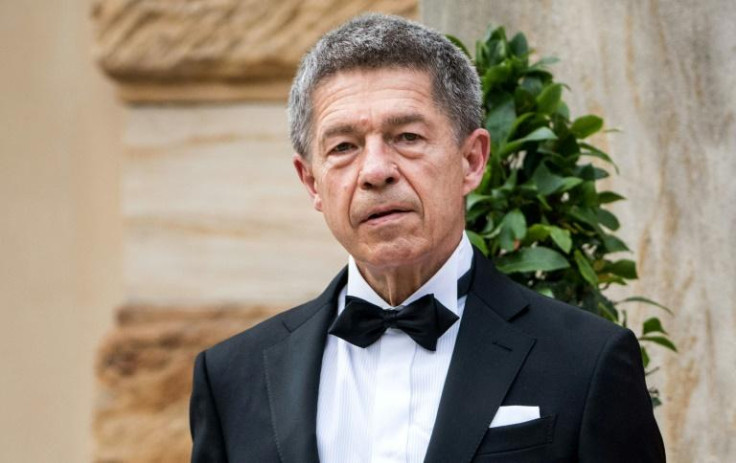Merkel's husband calls unvaccinated Germans 'lazy'
The sluggish vaccine uptake and rapidly filling intensive care beds have ignited a fierce debate
Chancellor Angela Merkel's husband on Tuesday accused unvaccinated Germans of "laziness", as calls grew louder for the country to consider mandatory coronavirus jabs to combat a dramatic rise in infections.
Germany's Covid-19 resurgence has in part been blamed on its relatively low vaccination rate compared with Western European nations like France, Italy or Spain, with just 68 percent of the population fully jabbed.
"It is astonishing that a third of the population does not follow scientific findings," Merkel's husband, Joachim Sauer, said in an interview with Italian newspaper La Repubblica and picked up by German daily Die Welt.
"In part, this is due to a certain laziness and complacency of Germans," said Sauer, who seldom speaks in public.
"The other group are people who follow a personal conviction, a kind of ideological reaction to what they consider a vaccination dictatorship," Sauer said, a cohort he said also included some doctors and scientists.
Like his famous wife, Sauer is a quantum chemist, and was in Italy on an academic visit.
Sauer's comments came a day after Merkel warned that Germany was not doing enough to contain the "highly dramatic" fourth wave of the pandemic.
The outgoing chancellor, who is acting in a caretaker capacity and will likely be replaced by Finance Minister Olaf Scholz next month, has repeatedly urged Germans to get vaccinated.
The sluggish vaccine uptake and rapidly filling intensive care beds have ignited a fierce debate about whether Germany should follow neighbouring Austria's example and make coronavirus jabs compulsory.
Although Merkel's federal government has always ruled out doing so, the mood has started to shift in recent days, particularly in Germany's hardest-hit regions.

Germany last week announced tougher Covid curbs, including requiring people to prove they are vaccinated, cured or have recently tested negative for the virus before they can travel on public transport or go into the workplace.
Several of Germany's 16 states have gone further still, cancelling large events like Christmas markets and barring the unvaccinated from bars, gyms and leisure facilities.
Bavarian Premier Markus Soeder, from Merkel's conservative camp, and his Baden-Wuerttemberg counterpart Winfried Kretschmann, from the Green party, issued a joint plea for mandatory jabs in the Frankfurter Allgemeine newspaper.
Society will "pay an ever higher price for a small part of the population" rejecting the vaccine offer, they warned, stressing that mandatory jabs were necessary "to give us back our freedoms".
Kretschmann said the idea was not to forcefully inject someone, but that hold-outs could face fines or be excluded from certain parts of public life if they didn't comply with a vaccine mandate.
Hesse premier Volker Bouffier, whose state is home to the city of Mainz where the Pfizer/BioNTech vaccine was co-developed, also came out in favour of compulsory Covid-19 jabs, as did the leaders of Saxony-Anhalt and Schleswig-Holstein.
Merkel's centre-right CDU party, which is gearing up for a stint in the opposition, urged the incoming Scholz-led coalition government to tell the German public where they stood on the issue.
In one novel attempt to entice Germans to get jabbed, a foundation in Frankfurt invited more than 200 homeless people to turn up for free curry sausages and get inoculated at the same time.
And in the northern city of Hanover, officials said they would give away 1,000 tickets to the January 23 second-division football game between Hannover 96 and Dynamo Dresden to those getting their first or booster jab in coming days.
Germany's weekly incidence rate stood at 399.8 new coronavirus infections per 100,000 people on Tuesday, an all-time high, according to the Robert Koch Institute.
Copyright AFP. All rights reserved.
This article is copyrighted by International Business Times, the business news leader





















